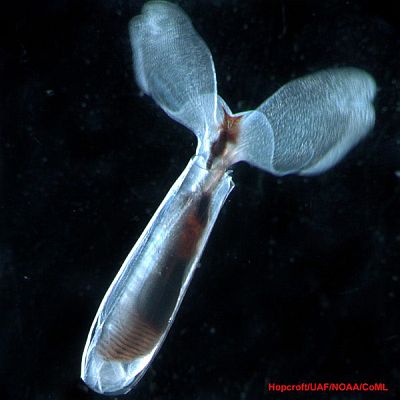Deep-sea exploration vessel captures footage of 'Flying Spaghetti Monster' on the ocean floor off the coast of Chile

High Seas and Seamounts of the Nazca Ridge | 4K ROV Highlights - YouTube
New Seamount and Previously Unknown Species Discovered in High Priority Area for International Marine Protection - Schmidt Ocean Institute
https://schmidtocean.org/new-seamount-and-previously-unknown-species-discovered-in-high-priority-area-for-international-marine-protection/
Watch 'spaghetti monster' with dozens of pink-tipped sausage legs swimming near Nazca Ridge | Live Science
https://www.livescience.com/animals/cnidaria/watch-spaghetti-monster-with-dozens-of-pink-tipped-sausage-legs-swimming-near-nazca-ridge
Schmidt Ocean Institute Discovers 20 New Species Along the Remote Nazca Ridge — Colossal
https://www.thisiscolossal.com/2024/09/schmidt-ocean-institute-20-new-species/
In August 2024, the Schmidt Ocean Institute conducted a deep-sea survey of the Nazca Ridge, 900 miles (1,448 km) off the coast of Chile. The survey included mapping the newly discovered seamount, which is over 3,109 meters high, and also surveying living organisms using the unmanned exploration vessel 'Falkor.'
A Mosaic of Life | High Seas and Seamounts of the Nazca Ridge - YouTube
A survey conducted in January and February 2024 discovered more than 100 new species and giant seamounts along the Nazca Ridge and the neighboring Salas y Gomez Ridge. As a result, marine biologist Alex Rogers said, 'The seamounts in the southeast Pacific are a hotbed of incredible biodiversity.'
The survey revealed 20 new species of organisms, as well as a squid from the Promachoteuthis family, whose remains had previously only been caught in nets.

We also successfully captured on film an octopus nicknamed '

In addition, a type of siphonophore called 'Bathyphysa conifera' was also found. The siphonophore is a type of hydrozoan that consists of groups of 'zooey' jellyfish, each of which is specialized for a specific function such as reproduction or digestion, and can grow to a length of several meters.

According to the Schmidt Ocean Institute, three studies, including this one, have increased the number of known species in the southeast Pacific from 1,019 in 2023 to more than 1,300.
'This research will greatly improve our understanding of the distribution of life on ocean ridges, including organisms that have never been seen before,' Rogers said.
Related Posts:







